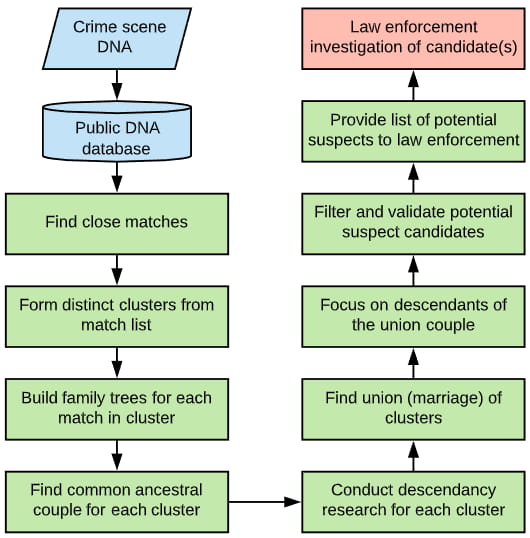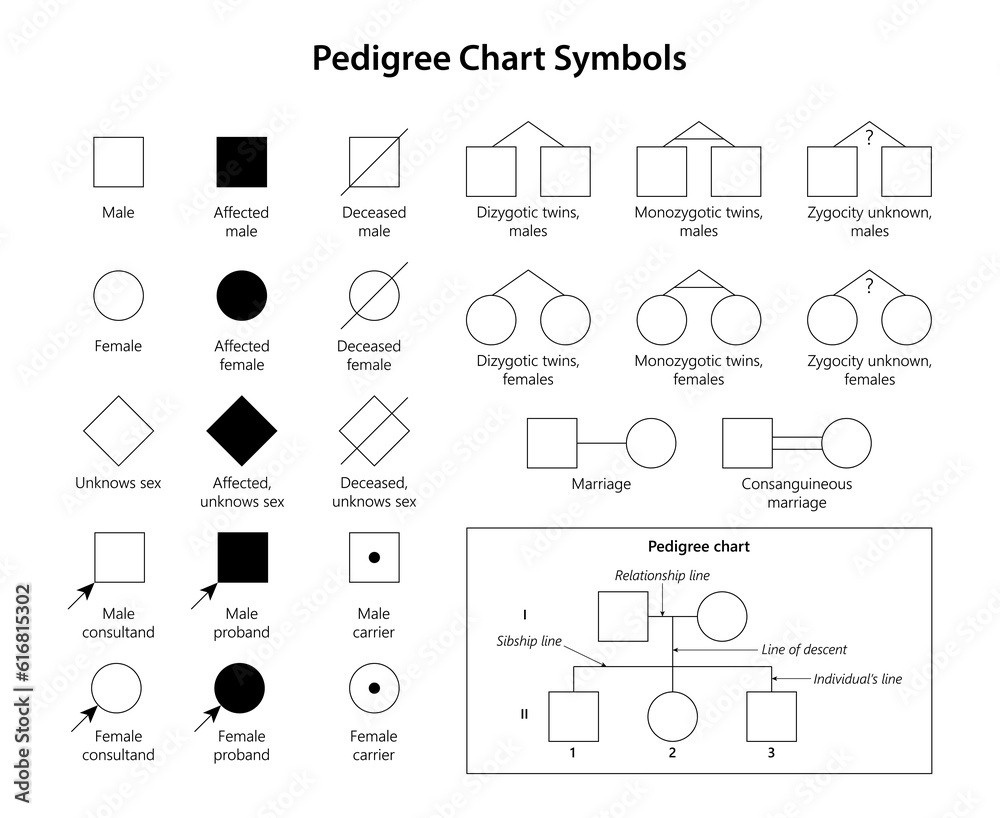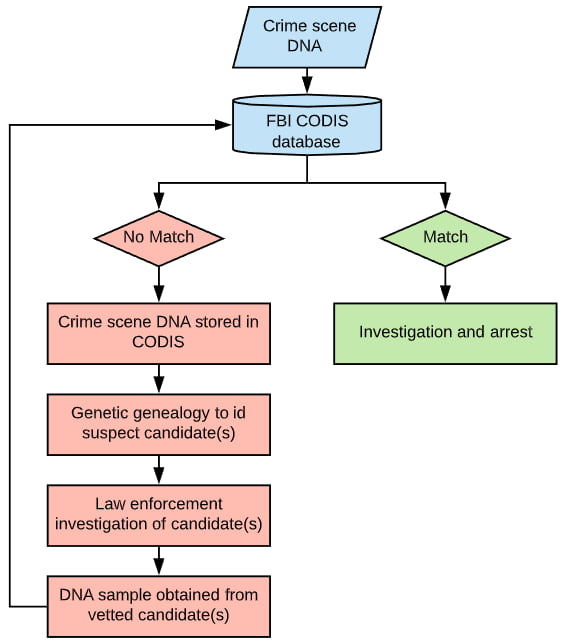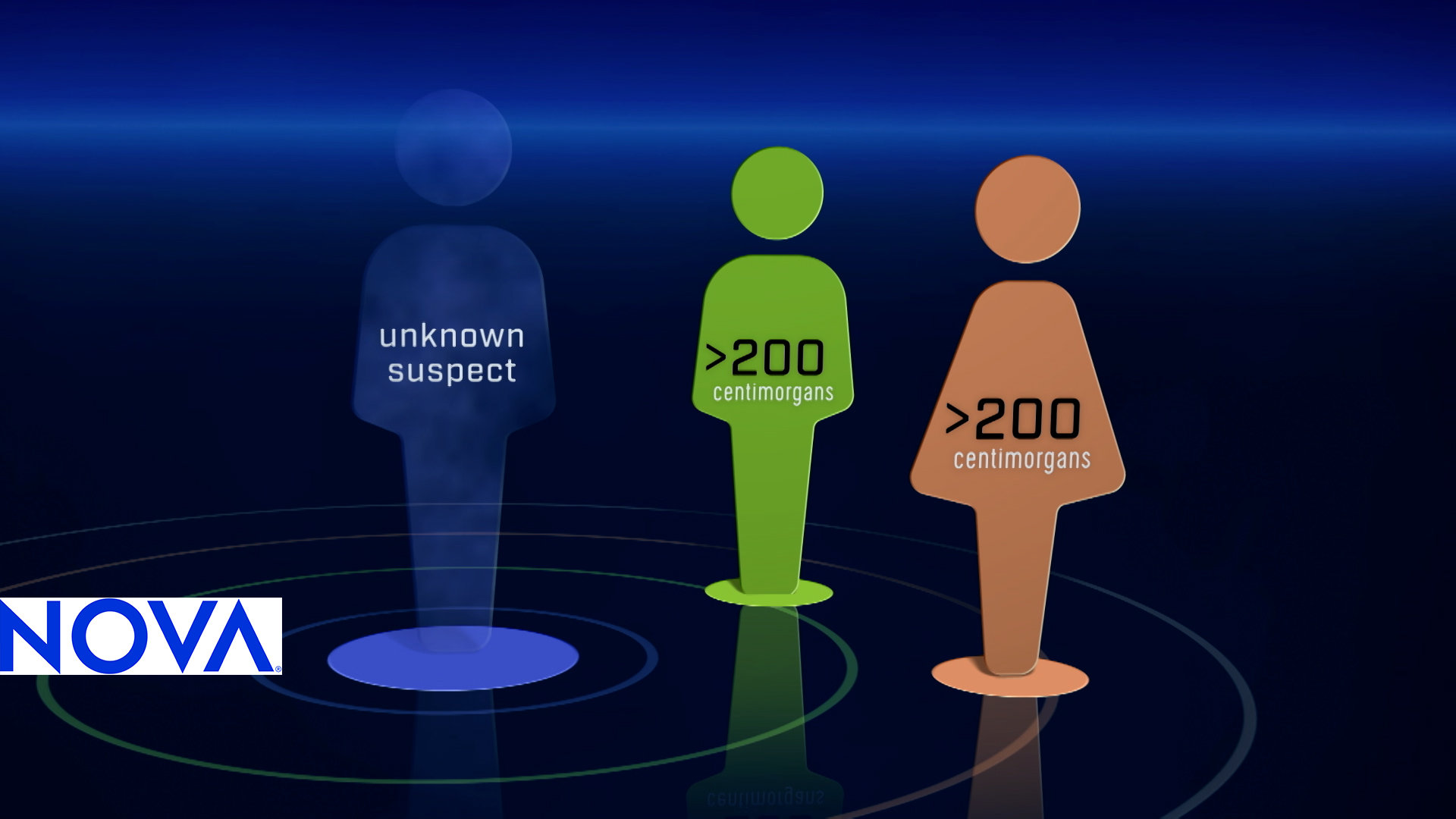Genetic Genealogy In Crime - Since 2018, law enforcement’s use of genetic genealogy to identify and apprehend suspects has been growing , especially in high. Genetic genealogy, the practice of using dna analysis to trace family trees, has revolutionized the field of criminal investigation. We define ifgg as the use by law enforcement of genetic genealogy combined with traditional genealogy to generate suspect investigational. Dna evidence demonstrates only that an individual’s genetic material was found at a given location, not that the person was present during, or indeed. Read on to learn about investigative genetic genealogy: How it works, what major companies are doing in response, and why it’s sparking some.
Dna evidence demonstrates only that an individual’s genetic material was found at a given location, not that the person was present during, or indeed. Since 2018, law enforcement’s use of genetic genealogy to identify and apprehend suspects has been growing , especially in high. We define ifgg as the use by law enforcement of genetic genealogy combined with traditional genealogy to generate suspect investigational. Read on to learn about investigative genetic genealogy: How it works, what major companies are doing in response, and why it’s sparking some. Genetic genealogy, the practice of using dna analysis to trace family trees, has revolutionized the field of criminal investigation.
We define ifgg as the use by law enforcement of genetic genealogy combined with traditional genealogy to generate suspect investigational. Dna evidence demonstrates only that an individual’s genetic material was found at a given location, not that the person was present during, or indeed. How it works, what major companies are doing in response, and why it’s sparking some. Genetic genealogy, the practice of using dna analysis to trace family trees, has revolutionized the field of criminal investigation. Read on to learn about investigative genetic genealogy: Since 2018, law enforcement’s use of genetic genealogy to identify and apprehend suspects has been growing , especially in high.
The future of genealogy’ crime solving Literacy Project
How it works, what major companies are doing in response, and why it’s sparking some. Dna evidence demonstrates only that an individual’s genetic material was found at a given location, not that the person was present during, or indeed. We define ifgg as the use by law enforcement of genetic genealogy combined with traditional genealogy to generate suspect investigational. Read.
Investigative Genealogy How Does it Work?
How it works, what major companies are doing in response, and why it’s sparking some. We define ifgg as the use by law enforcement of genetic genealogy combined with traditional genealogy to generate suspect investigational. Read on to learn about investigative genetic genealogy: Dna evidence demonstrates only that an individual’s genetic material was found at a given location, not that.
The emerging field of Forensic Genealogy solving crimes using
Read on to learn about investigative genetic genealogy: Dna evidence demonstrates only that an individual’s genetic material was found at a given location, not that the person was present during, or indeed. Genetic genealogy, the practice of using dna analysis to trace family trees, has revolutionized the field of criminal investigation. We define ifgg as the use by law enforcement.
Genealogy. Pedigree Chart Symbols. Stock Illustration Adobe Stock
How it works, what major companies are doing in response, and why it’s sparking some. Genetic genealogy, the practice of using dna analysis to trace family trees, has revolutionized the field of criminal investigation. Dna evidence demonstrates only that an individual’s genetic material was found at a given location, not that the person was present during, or indeed. Since 2018,.
NIH Bioethicists Use Genealogy in Crime Solving — But Focus on
Dna evidence demonstrates only that an individual’s genetic material was found at a given location, not that the person was present during, or indeed. Genetic genealogy, the practice of using dna analysis to trace family trees, has revolutionized the field of criminal investigation. How it works, what major companies are doing in response, and why it’s sparking some. We define.
CeCe Moore William Ear Talbott II’s Trial Important For
Read on to learn about investigative genetic genealogy: Dna evidence demonstrates only that an individual’s genetic material was found at a given location, not that the person was present during, or indeed. Since 2018, law enforcement’s use of genetic genealogy to identify and apprehend suspects has been growing , especially in high. We define ifgg as the use by law.
Solving The Toughest Cold Case Murders With Forensic Genealogy
We define ifgg as the use by law enforcement of genetic genealogy combined with traditional genealogy to generate suspect investigational. Since 2018, law enforcement’s use of genetic genealogy to identify and apprehend suspects has been growing , especially in high. Dna evidence demonstrates only that an individual’s genetic material was found at a given location, not that the person was.
Investigative Genealogy How Does it Work?
Read on to learn about investigative genetic genealogy: Since 2018, law enforcement’s use of genetic genealogy to identify and apprehend suspects has been growing , especially in high. How it works, what major companies are doing in response, and why it’s sparking some. Dna evidence demonstrates only that an individual’s genetic material was found at a given location, not that.
Using Genealogy to Solve Crimes Secrets in Our DNA PBS
Since 2018, law enforcement’s use of genetic genealogy to identify and apprehend suspects has been growing , especially in high. Read on to learn about investigative genetic genealogy: We define ifgg as the use by law enforcement of genetic genealogy combined with traditional genealogy to generate suspect investigational. Genetic genealogy, the practice of using dna analysis to trace family trees,.
Genealogy standards The Genealogy Standards
Dna evidence demonstrates only that an individual’s genetic material was found at a given location, not that the person was present during, or indeed. We define ifgg as the use by law enforcement of genetic genealogy combined with traditional genealogy to generate suspect investigational. Genetic genealogy, the practice of using dna analysis to trace family trees, has revolutionized the field.
Since 2018, Law Enforcement’s Use Of Genetic Genealogy To Identify And Apprehend Suspects Has Been Growing , Especially In High.
Genetic genealogy, the practice of using dna analysis to trace family trees, has revolutionized the field of criminal investigation. Read on to learn about investigative genetic genealogy: We define ifgg as the use by law enforcement of genetic genealogy combined with traditional genealogy to generate suspect investigational. Dna evidence demonstrates only that an individual’s genetic material was found at a given location, not that the person was present during, or indeed.









